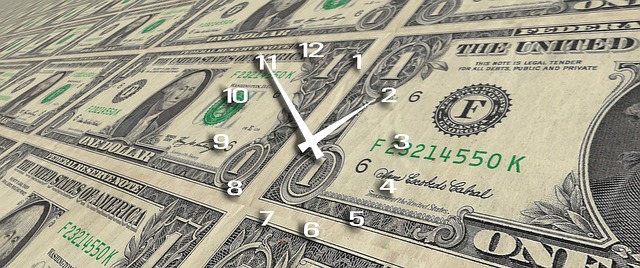What Should You Consider When Filing Bankruptcy?

Just thinking of filing for bankruptcy is more than enough to strike substantial fear into anyone’s heart. A good number of debt and managing their expenses. If this applies to you, or if you are dealing with this nightmare now, the information in this article will be useful for you.If this describes your situation, you should begin to investigate the legislation in your state. Different states have different laws when it comes to bankruptcy. For instance, the personal home is exempt from being touched in some states, while other states prohibit this. You should be aware of local bankruptcy laws before filing for bankruptcy.
Credit Card
Individuals often seek to file for personal bankruptcy protection if their debts exceed their ability to repay them. If this is the case for you, you should begin to investigate the legislation in your state. Different states have different laws regarding bankruptcy. In some areas, your residence may be completely exempt, but in others, it will not be. It is important to understand the laws in your state before filing for bankruptcy.Don’t use a credit card to pay your taxes before filing for bankruptcy.In most states, you cannot get this debt discharged, and you may still owe money to the IRS. This means using a credit card is not necessary, since bankruptcy will discharge it.Don’t fear reminding your lawyer specific details of your case. Don’t assume they already know and that they have these important later without having a reminder.This is your bankruptcy case, so never be nervous about speaking your mind.You might experience trouble with getting unsecured credit card or line after filing for bankruptcy. If you are in this situation, apply for a secured card or two. This at least shows you are making an honest attempt at reestablishing your credit score. After a while, you might be offered an unsecured card once again.Ask yourself if filing for bankruptcy is the right thing to do. Other available options include consumer credit counseling. If you file for bankruptcy, a mark is permanently left on your credit. Therefore, before you do this, you should utilize all the other options that you have.Be certain to grasp the distinction between Chapter 7 and Chapter 13 bankruptcy. Chapter 7 involves the elimination of all of your debts for good. All the people you to creditors will go away. Chapter 13 bankruptcy allows for a five year repayment plan that takes 60 months to work with until the debts go away.

Be certain that bankruptcy really is your best option. You may be able to regain control over your debts by consolidating them. It is not a quick and easy process to file for personal bankruptcy.It will also limit your ability to secure credit for the next few years. This is why it is crucial that you must make sure bankruptcy is your last resort.Think about all the trigger.Loan modification can be helpful for those facing foreclosure. The lender can help your financial situation by getting interest rates lowered, so they may be willing to forgive some fees, change the loan term or reduce interest as ways of assisting you. When push comes to shove, the creditors want their money, so sometimes it’s best to deal with a repayment plan than with a bankruptcy debtor.When you realize that you probably will file for bankruptcy, do not pay your creditors or try to avoid bankruptcy by spending all of your regular or retirement savings. No matter what you do, do not touch your personal savings unless there is no other option. Although you may need to tap into your savings, you should not use up all of it right now and jeopardize the financial security of your future.That stress can lead to depression, if you don’t take care to avoid it. Life will surely get better after you just need to make it through the bankruptcy process.It is possible to obtain new vehicle and home loans while a Chapter 13 bankruptcy. You have to meet with your trustee to get approval for a new loan type. You need to show them why and prove that you will be able to afford your new loan payments. You will also need to have to let them know why this item needs to be purchased.Know your rights that you have as you file for bankruptcy.Some debtors will try to tell you that your debts can’t be bankrupted. There are a few debts that cannot be cleared, such as student loans and child support, that can’t be bankrupted. If the bill collector is trying to deceive you, check the bankruptcy laws in your state or consult an attorney.It is essential when going through bankruptcy that all of your income and assets are reported openly and honestly. As long as you are not hiding income or assets from the courts, you can ensure that there are no difficulties with your petition. This will save you from having your petition dismissed and your debts dropped from re-filing.Make sure that you are acting at the appropriate time. Timing is very important when it comes to personal bankruptcy cases.For some people, immediate filing is ideal, however for others, waiting a while is best. Speak with a bankruptcy lawyer to discuss the proper timing is for you to file bankruptcy.Those who are afraid of bankruptcy are entirely justified; it often can be a frightening experience. The thought of filing may have scared you away in the past, but with this article in hand, you should fear no longer. Apply what you’ve learned here, and get a fresh start for you and your family.
Bad Credit Loans! Finally, an easy way to get up to $5,000! Click Here!



